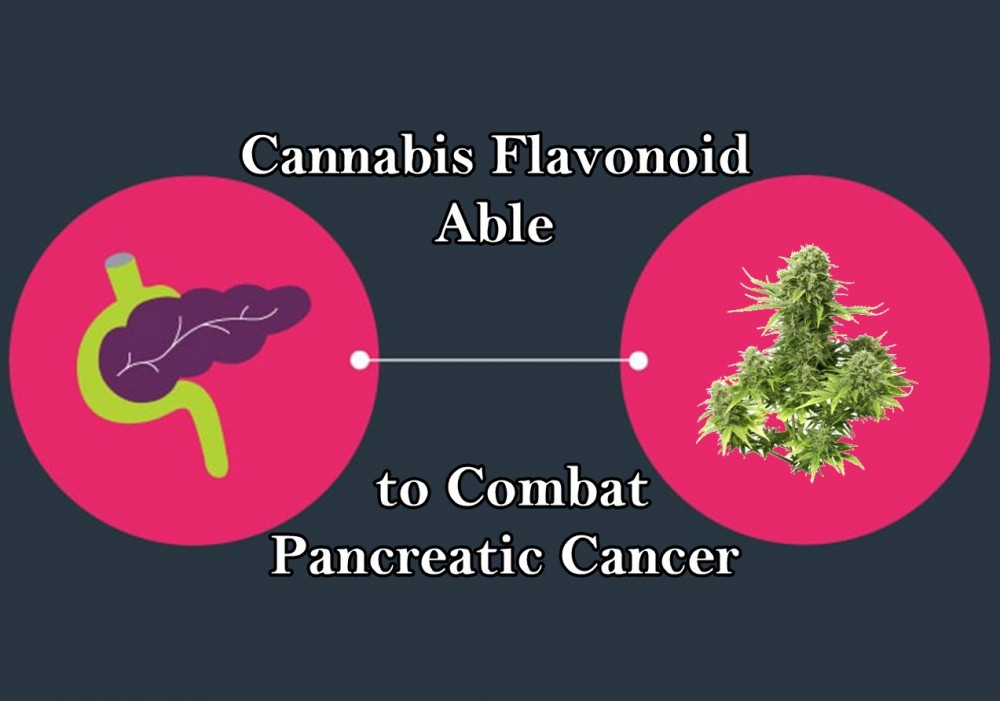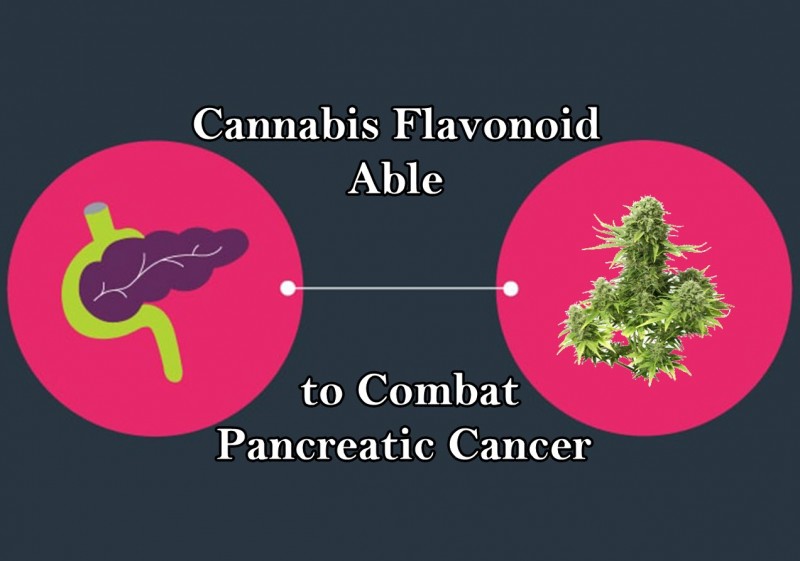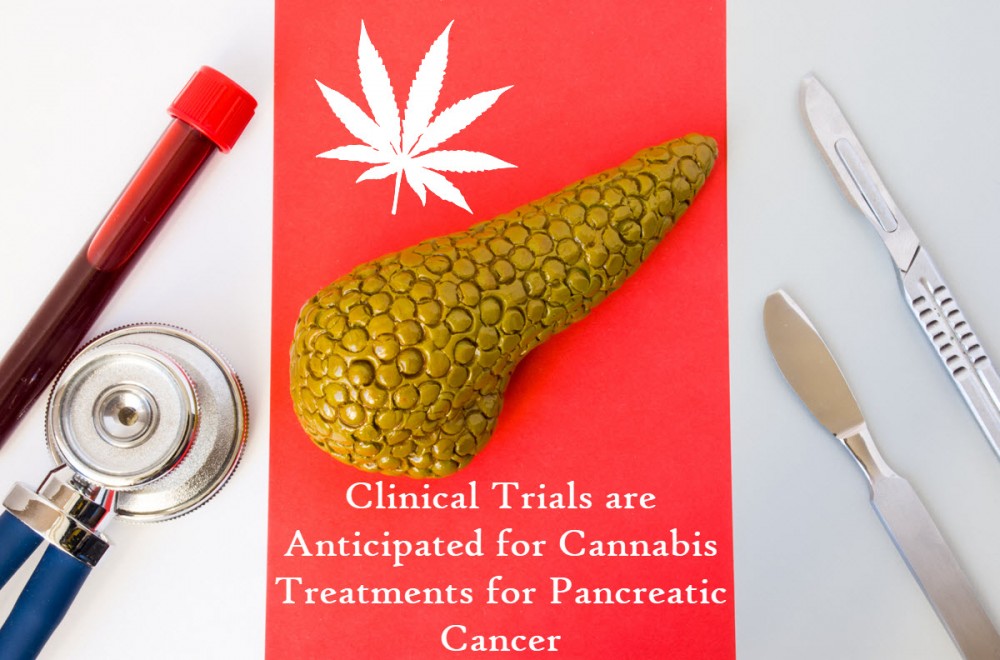Cannabis Flavonoid Able to Combat Pancreatic Cancer

New research discovered that a cannabis-derived flavonoid that is not a cannabinoid nor has psychoactive properties can combat pancreatic cancer. In a study done on animals, they found that this flavonoid was very useful in killing tumor cells in 70 % of mice used in the study.
Let’s take a step back. What is Pancreatic Cancer?
Pancreatic cancer begins in the tissue of the pancreas. The pancreas is an organ that lies just behind the lower part of the stomach. Its function is to release enzymes that help with digestion and it produces hormones that help with blood sugar regulation. Some growths can occur in the pancreas. Some could be cancerous, and others could be benign. The most common type of pancreatic cancer is when cancer begins in the cells that line the ducts that carry digestive enzymes out of the pancreas. This is called pancreatic ductal adenocarcinoma.
The problem with pancreatic cancer is that it often is detected very late after it already has spread to other organs. Some of the symptoms that might manifest are the following:
Stomach pain that flows to the back
No appetite and weight loss
Yellowness under the skin and eyes
Stools light in color
Very dark urine
Skin itchiness
Diagnosis of diabetics or existing diabetics difficult to control
Blood clots
Severe tiredness.
What is the Cause of Pancreatic Cancer?
Like with any other cancer, when the cells start to mutate in their DNA, they start to grow uncontrollably and keep on living where other healthy cells die at the normal rate. Eventually, it forms a tumor, and if left untreated, it goes to other parts of your body. People at risk are those who smoke, have diabetes, obesity, family history, and older age. Pancreatic cancer is quite deadly and has only a survival rate of 8%. The reason is that pancreatic cells adapt to treatment and become resistant. It also metastasizes to other organs long before it is detected. It makes it one of the more difficult cancers to treat. Scientists are always on the lookout for new ways to combat this type of cancer.
How the Flavonoid FBL-03G Helps to Fight Pancreatic Cancer?
The cannabis Sativa plant never stops to surprise scientists. Every now and again, it opens up and demonstrates a new ability. Compound by compound scientists are starting to put things together in the otherwise complex code of the plant. For a while cannabinoids and terpenes have been studied, but now the focus is also turned to flavonoids. The pharmacological benefits of these secondary metabolites are responsible for the color, it attracts bees for pollination and protects the plant against diseases and pests. It also plays a role in the taste and aroma of the plant. But it also has therapeutic values.
The flavonoid FBL-03G is also known as Cannflavin B was tested to see if non-cannabinoid, non-psychoactive derivative potentially could be used in immunotherapy. It showed enormous potential in the treatment of pancreatic cancer. New therapy treatments are desperately needed because of the difficulty of this cancer.
Cannflavin B Inhibits Tumor Growth
In a study with Dana Farber Cancer Institute and Harvard Medical School, researchers looked at the impact of FBL-03G on tumor progression specifically in pancreatic cancer. To the surprise of the researchers, the flavonoid did not just stop the tumors from growing in the pancreas, but also to other parts of the body where it had spread to. In other words, it did not just stop the locally treated tumors, but also others far away.
How does it Happen?
There is obviously more research necessary to understand the exact mechanism of action, but it is already proof that FBL-03G could treat pancreatic cancer metastasis and improve survival rates of patients suffering from pancreatic cancer. It showed also a positive reduction of radiative tissue toxicity because it reduces the amount of radiotherapy needed in treatment for efficacious outcomes. This is good news, because not only would it reduce medical costs, but a patient would not need to come in frequently for radiotherapy.
Previous studies on how cannabinoid effectively work to target pancreatic cancer cells can only benefit from the therapeutic potential of flavonoids in the understanding of how all these compounds work together.
There is more to the Flavonoid FBL-03G
Cannflavin B also shows anti-inflammatory properties 30 times stronger than Aspirin. Its antioxidants have the potential to treat neuroinflammation and neurodegenerative conditions like Alzheimer’s disease. It will also benefit atherosclerosis and cardiovascular-related diseases.
What makes the study even more remarkable, is that other compounds in the cannabis plant that are not cannabinoids can also contribute therapeutic value. Cannabinoids interact with the endocannabinoid system, but compounds like flavonoids have nothing to do with the endocannabinoid system.
Closure
The finding is truly significant and calls for more studies, especially in humans.
PANCREATIC CANCER AND CANNABIS, READ MORE...
CANNABIS TRIALS FOR PANCREATIC CANCER, CLICK HERE.







